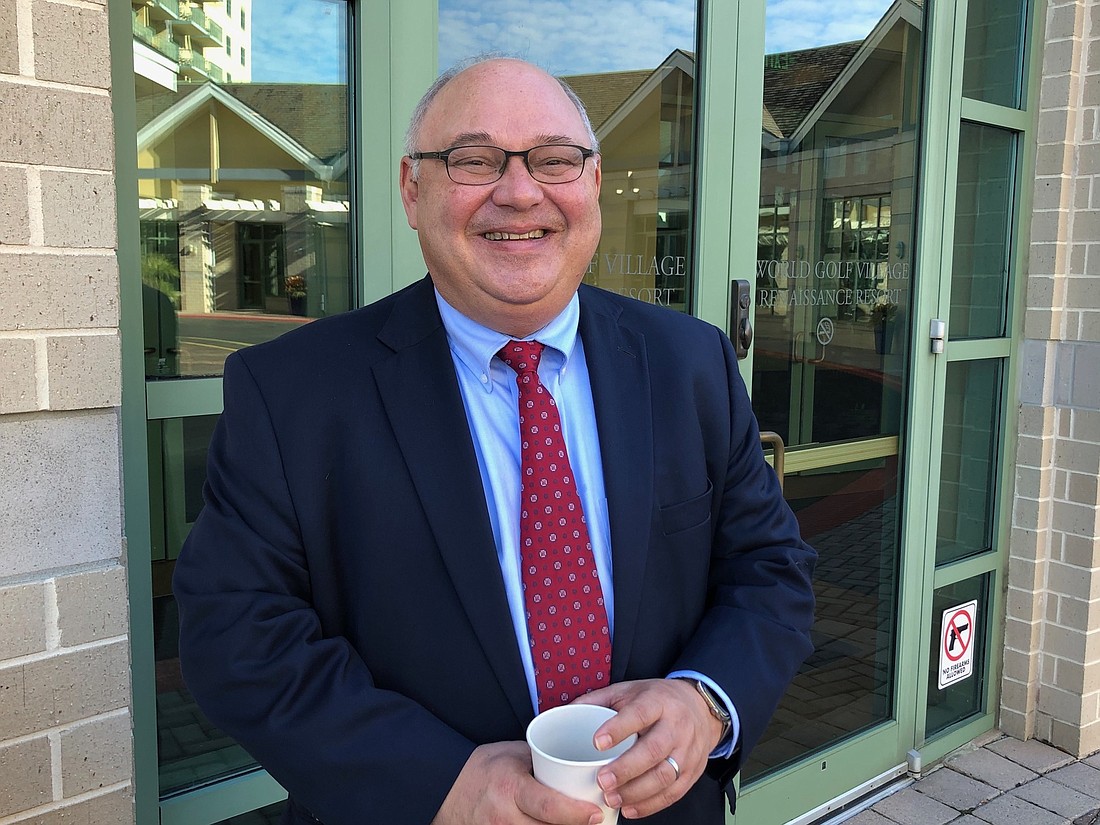
Even after an unprecedented 10-year expansion, Wells Fargo Securities Senior Economist Mark Vitner isn’t worrying about a recession.
“I’m more worried about LSU,” Vitner said Friday morning before the weekend’s SEC football championship game between Louisiana State University and the University of Georgia.
Speaking to 170 people at the quarterly breakfast of the St. Johns County Chamber of Commerce’s Economic Development Council, Vitner expressed optimism that the nation’s economy will continue to grow.
His presentation began just as the U.S. Labor Department reported unemployment fell to a 50-year low of 3.5% in November, with 266,000 jobs added in the month. That was better than forecasts of about 180,000 jobs, Vitner said.
“The economy seems to have some pretty strong momentum,” he said at the event at the Renaissance World Golf Village Resort.
Negotiations over trade deals have made many people nervous about a possible recession. Growth, as measured by the U.S. gross domestic product, has fallen from 3% last year to 2.3% this year, Vitner said.
“Almost all of the slowing is things that are tied to international trade,” he said.
Despite the trade war with China that is grabbing headlines, Vitner expects the U.S. to reach an agreement.
“I do think we’re going to get a deal with China,” he said.
“China needs a deal more than people realize.”
A major factor that might push China to make a deal is its need for pork and other meat imports, Vitner said. China’s domestic pork production has been hurt by African swine flu, he said, increasing the need for imports.
Although the trade war might be a drag on the economy, Vitner doesn’t see it as enough to cause a U.S. recession.
“We’re mostly a domestically driven economy,” he said.
Several signs point toward continued growth, he said, including surveys by Wells Fargo showing businesses need to restock inventories after several years of oversupply.
“I think they underestimate this inventory swing,” he said.
Vitner also thinks the housing market is in good shape, unlike 2007 before the last recession began.
“In the last cycle it was really easy to see,” he said.
“If you look at the economy today, we haven’t built too many houses.”
Vitner lives in Charlotte, North Carolina, but he knows the Northeast Florida economy well, having worked as an economist at Jacksonville-based Barnett Banks Inc. for nine years before leaving in 1993.
He saw that St. Johns County wasn’t as affected as much as other places coming out of the last recession, which ended in 2009.
“There were about three places that were growing and this was one of the three,” he said.
Vitner thinks Jacksonville has a big advantage over other large East Coast metropolitan areas because its cost of living is lower.
“That’s what’s attracting so many people here,” he said.
Jacksonville ranks 16th among the 50 largest U.S. metropolitan areas in net growth of people moving to the area, he said.
“All of these cities (except Jacksonville) have gotten very expensive very quickly.”
Although growth is driving up costs in other cities, Vitner doesn’t expect that to change in Jacksonville.
“I think it’s one (advantage) that will carry over into the next decade,” he said.
He thinks economic growth also will carry over into the 2020s.
“It’s hard for me to see a recession not just now but further out there,” he said.